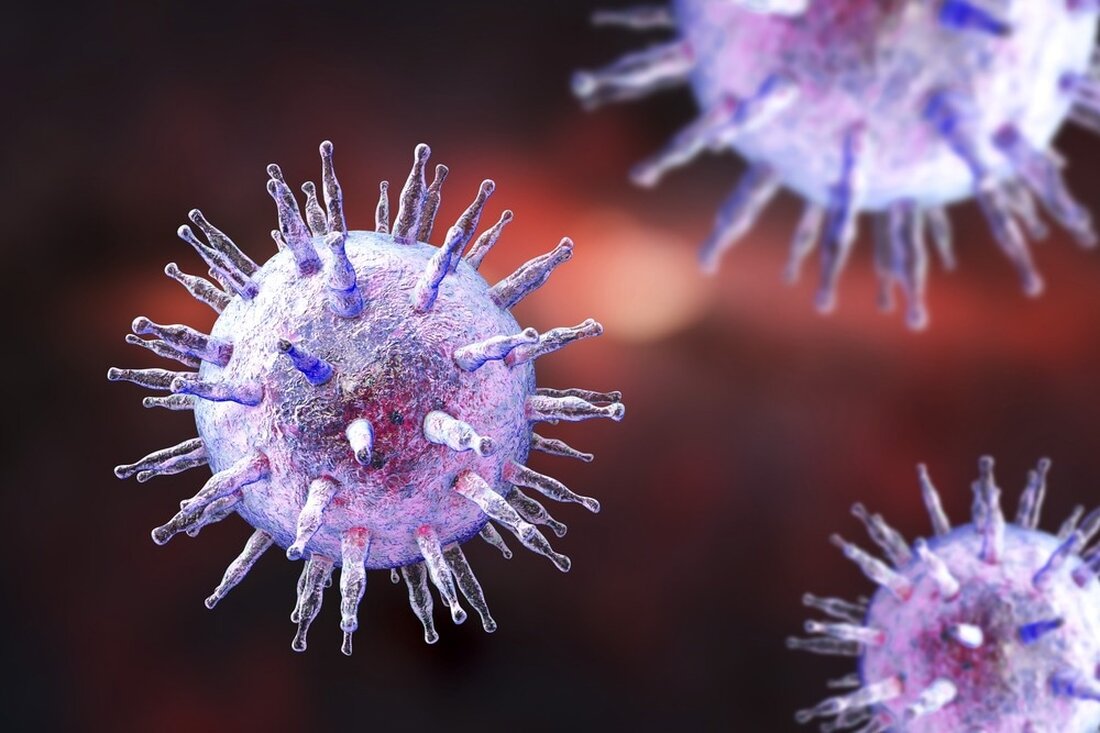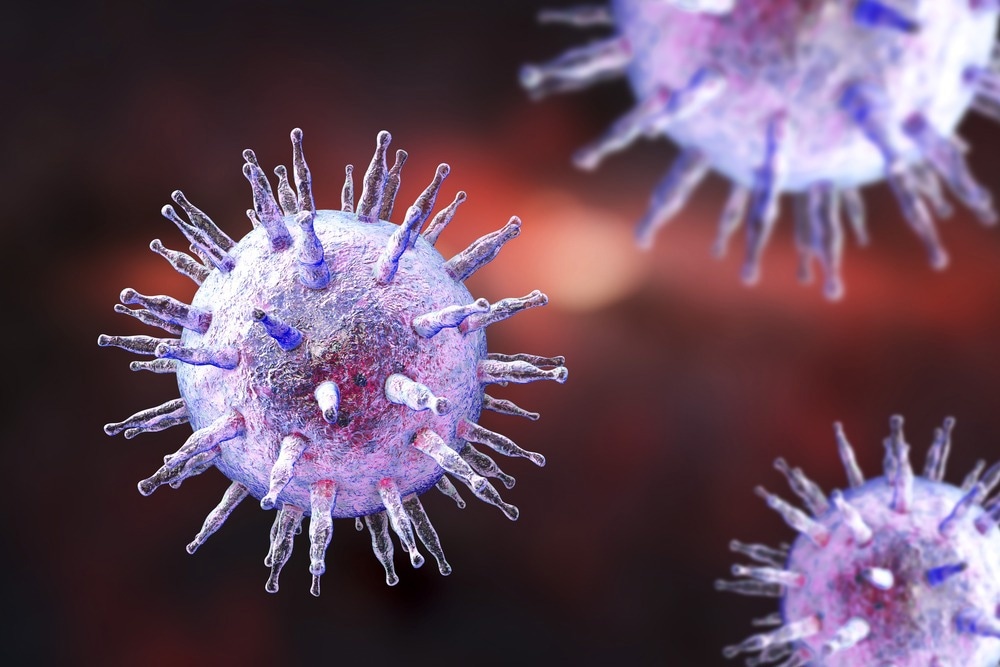Based on a previous study, researchers present their point of view on the connection between EBV infections and the development of MS
In a recent review published in the Journal of Clinical Investigation, researchers presented their position on the association between Epstein-Barr virus (EBV) infections and the development of multiple sclerosis (MS) based on a previous study by Bjornevik et al. published in Science. Learning: Falling down the biological rabbit hole: Epstein-Barr virus, biography and multiple sclerosis. Photo credit: Kateryna Kon/Shutterstock Background The previous study reported an increased risk of MS in EBV-infected active-duty military personnel, supporting the need for EBV vaccinations for soldiers. The authors commented on whether such vaccinations are necessary for military personnel and whether they have lived experiences and biosocial factors [search...

Based on a previous study, researchers present their point of view on the connection between EBV infections and the development of MS
In a recently published review in the Journal of Clinical Investigation The researchers presented their position on the association between Epstein-Barr virus (EBV) infections and the development of multiple sclerosis (MS) based on a previous study by Bjornevik et al. published in Science.

Lernen: Fallen in den biologischen Kaninchenbau: Epstein-Barr-Virus, Biografie und Multiple Sklerose. Bildnachweis: Kateryna Kon/Shutterstock
background
The previous study reported an increased risk of MS in EBV-infected active-duty military personnel, supporting the need for EBV vaccinations for soldiers. The authors commented on whether such vaccinations are necessary for military personnel and whether lived experiences and biosocial factors [such as anxiety, stress, loneliness, depression, and post-traumatic stress disorder (PTSD)] may influence the association between EBV and MS based on previous research.
In the present review, researchers gave their opinion on the likely link between EBV and MS based on a previous study.
The study
A previous study reported a 24-fold higher likelihood of MS in EBV-infected individuals compared to EBV-uninfected individuals, supporting the need for EBV vaccinations for MS prevention. However, the study authors mentioned pitfalls such as incomplete analyzes and incorrect data representations in the study.
The study included more than 10 million adults and was based on a human immunodeficiency virus (HIV) screening program conducted by the United States (US) Department of Defense between 1993 and 2013, which collected sera from active-duty military personnel upon military enlistment and every two years. The study obtained sera from MS patients (cases, n = 801) and controls (n = 1566) matched by age, gender, ethnicity, branch of service, and date of sample data collection to evaluate antibody titers among military cadets to EBV, herpes simplex virus 1 (HSV-1), and HHV-6 (human herpes virus 6).
The case subjects were either EBV positive at military induction (Group A) or EBV seropositivity during active military service after military induction (Group B). The odds ratios (OR) for MS development in individuals in group A and group B were 1.6 and 25.6, respectively, indicating a significantly higher risk of MS development after EBV seroconversion.
Genetics & Genomics eBook
Compilation of the top interviews, articles and news from the last year.
Download a copy today
Psychological assessments were conducted based on the NEO Personality Inventory, Health Questionnaire, Perceived Stress Questionnaire, and Social Support Questionnaire. Serum samples obtained in the study showed significant increases in serological antibody titers, consistent with previous studies conducted on individuals with high levels of psychological stress.
The viewpoint
The authors have suggested that several biosocial factors based on exposures, behaviors (particularly work-related), PTSD, and emotions resulting from social relationships need to be considered to explain the study results. Stress and anxiety during active military combat and the loss of friends and/or colleagues during military service may influence an individual's risk of developing MS.
Integrating biological variables such as microbiome and genetic susceptibility), environmental variables such as latitude changes and toxins, and biosocial variables such as lived experiences or biographies related to traumatic or stressful experiences may improve the understanding of the etiopathogenesis of MS.
The authors stated that the study was well suited for serological analysis; however, more quantitative analyzes are needed to gain further insight into the association between EBV and MS. The Department of Defense data could be consolidated with the comprehensive data maintained by the armed forces on active-duty personnel, and determining the timing of infection after seroconversion could help identify potential windows of differential susceptibility.
Furthermore, allostatic load (a physiological measure of the human body's collective stress load) could be assessed using multiple biomedical markers to model MS development risk after EBV seroconversion based on biosocial analysis. The authors caution against administering EBV vaccines for MS prevention because of the need to identify the full range of biographical and biological triggers of MS, although EBV infections have been associated with the development of MS.
Conclusion
In conclusion, the authors pointed out that several biological and biosocial factors may be associated with the development of MS after EBV seroconversion, which need to be investigated in future studies to determine the pathogenesis of MS in EBV-infected active-duty military personnel. They believe that EBV vaccinations may not be necessary to prevent MS in active military personnel with a history of EBV infections.
Reference:
- Horwitz, R. et al. (2022) „Das biologische Kaninchenloch hinunterfallen: Epstein-Barr-Virus, Biographie und Multiple Sklerose“, Journal of Clinical Investigation, 132(17). doi: 10.1172/jci164141. https://www.jci.org/articles/view/164141
.

 Suche
Suche
 Mein Konto
Mein Konto
